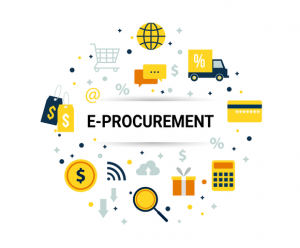
Procurement Services
Procurement services involve the management of the acquisition process for goods, services, or materials required by an organization to support its operations. These services encompass various activities aimed at sourcing, purchasing, and managing suppliers to ensure that the organization's needs are met efficiently and cost-effectively. Here are some key components of procurement services:
Strategic Sourcing: Procurement services begin with strategic sourcing, which involves identifying and selecting suppliers who can provide the required goods or services. This process includes analyzing supplier capabilities, assessing market conditions, and negotiating contracts to secure favorable terms and pricing.
Supplier Relationship Management: Effective procurement services involve building and maintaining relationships with suppliers to foster collaboration, communication, and mutual value creation. This includes evaluating supplier performance, addressing issues or concerns, and identifying opportunities for improvement.
Contract Negotiation and Management: Procurement services encompass contract negotiation and management, which involves negotiating terms, conditions, and pricing with suppliers to establish legally binding agreements. Procurement professionals ensure that contracts comply with regulatory requirements and mitigate risks for the organization.
Purchase Order Processing: Procurement services include processing purchase orders to formalize agreements with suppliers and initiate the procurement process. This involves issuing purchase orders, tracking order status, and managing changes or updates to orders as needed.
Supplier Diversity and Inclusion: Procurement services may incorporate supplier diversity and inclusion initiatives to promote the participation of diverse suppliers, including minority-owned, women-owned, veteran-owned, and small businesses. Supplier diversity programs aim to create opportunities for underrepresented suppliers and foster economic inclusion.
Cost Management and Savings Initiatives: Procurement services focus on cost management and savings initiatives to optimize procurement spending and reduce costs for the organization. This includes implementing cost-saving strategies, negotiating volume discounts, and identifying opportunities for cost efficiencies.
Risk Management: Procurement services involve identifying, assessing, and mitigating risks associated with procurement activities. This includes managing risks related to supply chain disruptions, supplier financial stability, quality issues, and regulatory compliance.
Compliance and Ethics: Procurement services ensure compliance with relevant laws, regulations, and organizational policies governing procurement activities. Procurement professionals adhere to ethical standards and practices, including transparency, fairness, and integrity in supplier relationships and decision-making.
Performance Measurement and Analytics: Procurement services utilize performance measurement and analytics to track key performance indicators (KPIs) related to procurement activities. This includes analyzing spending patterns, supplier performance, cost savings, and other metrics to identify opportunities for improvement and optimization.
Continuous Improvement: Procurement services are continually evolving to adapt to changing market conditions, organizational needs, and industry best practices. Procurement professionals engage in continuous improvement initiatives to enhance efficiency, effectiveness, and value delivery in procurement processes.
By leveraging procurement services effectively, organizations can optimize their procurement processes, reduce costs, mitigate risks, and enhance supplier relationships to drive long-term value and competitiveness.

